Merchant Relationship Status: It’s Complicated
May 14, 2019
Brokers will often say that building strong relationships with their merchants is critical to their success. John Celifarco, Managing Partner at Horizon Financial Group, a five person ISO in Brooklyn, said that the advantage they have over larger competitors is the relationships they’ve developed with their merchants. Celifarco’s office is even in a streetfront store, where a number of their merchants are actually neighboring stores. Celifarco sees this as a strength.
But Michael Bernier, Vice President of 1 West Finance, a 14-person brokerage based in New York, said that things have changed as competition has increased in the space.
Customers gravitate towards companies that can provide them with not only the best pricing, but also the best user experience, which is why we believe so many new players in the space have achieved scale so quickly.
While customer relationships are important, funders in the space that are improving their speed, efficiency, and pricing are going to win the deals.
“In general, if [end users] find a better price on Amazon, 9 times out of 10 they’re going to buy that product on Amazon, regardless of the sales person on the phone” Bernier said.
Bernier suggests that rate or speed may win the customer but another more legally-binding circumstance may guide the relationship accordingly.
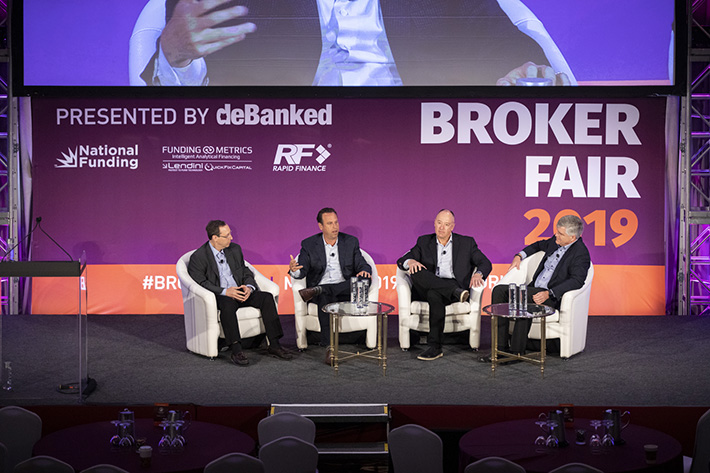
Kapitus CEO Andy Reiser served as moderator.
“Contractually, we own the customer,” said National Funding CEO Dave Gilbert on a panel at Broker Fair. “But we work in conjunction with the broker.”
Fellow panelist and Chairman of Rapid Finance, Jeremy Brown, said that he used to say what Gilbert said, but now says: “We own the loan. [And] we have the right to first renew the customer.”
Brokers seeking a very cozy relationship with their clients should therefore consider what rights and responsibilities are afforded to them under their referral contracts so that there’s no confusion with actions taken by either party with the customer down the road.
“I get close to people very quickly, it’s just who I am,” Kemp, a broker, told deBanked in an interview last year. “And in my opinion it works to my advantage because I have merchants that renew with me multiple times a year. And I know that no matter how many calls they get [from other brokers], they’re going to turn to me. I know that they trust me.”
Likewise, Chad Otar, CEO of Excel Capital in New York, has said that building trust with merchants is very important and is what leads to renewal business. Otar introduced one of his merchants, a marketing company, to his other clients. A few of them ended up working with the marketing company, which was a win for everyone and led to even stronger word of mouth from Otar’s merchants.
“I don’t think anyone owns the customer,” said CEO of BFS Capital Mark Ruddock on the panel alongside Gilbert and Brown. “Customers are a privilege, not a right.”
Broker Fair 2019 Makes Major Splash in the Heart of Manhattan
May 10, 2019
If a tiny ray of light were created from every conversation about small business financing, then the Roosevelt Hotel in midtown Manhattan would have been tantamount to the sun on May 6th. It was the site of deBanked’s 2nd annual Broker Fair and the grand old lobby was abuzz with brokers, funders and vendors from across the industry. And it wasn’t only the lobby. The hallways and ball rooms and bathrooms were filled with people in jackets or dresses with colorful conference badges hanging from their necks. You could not open your eyes without seeing a Broker Fair attendee.
The day kicked off with an address to the crowd by deBanked’s founder and president Sean Murray.
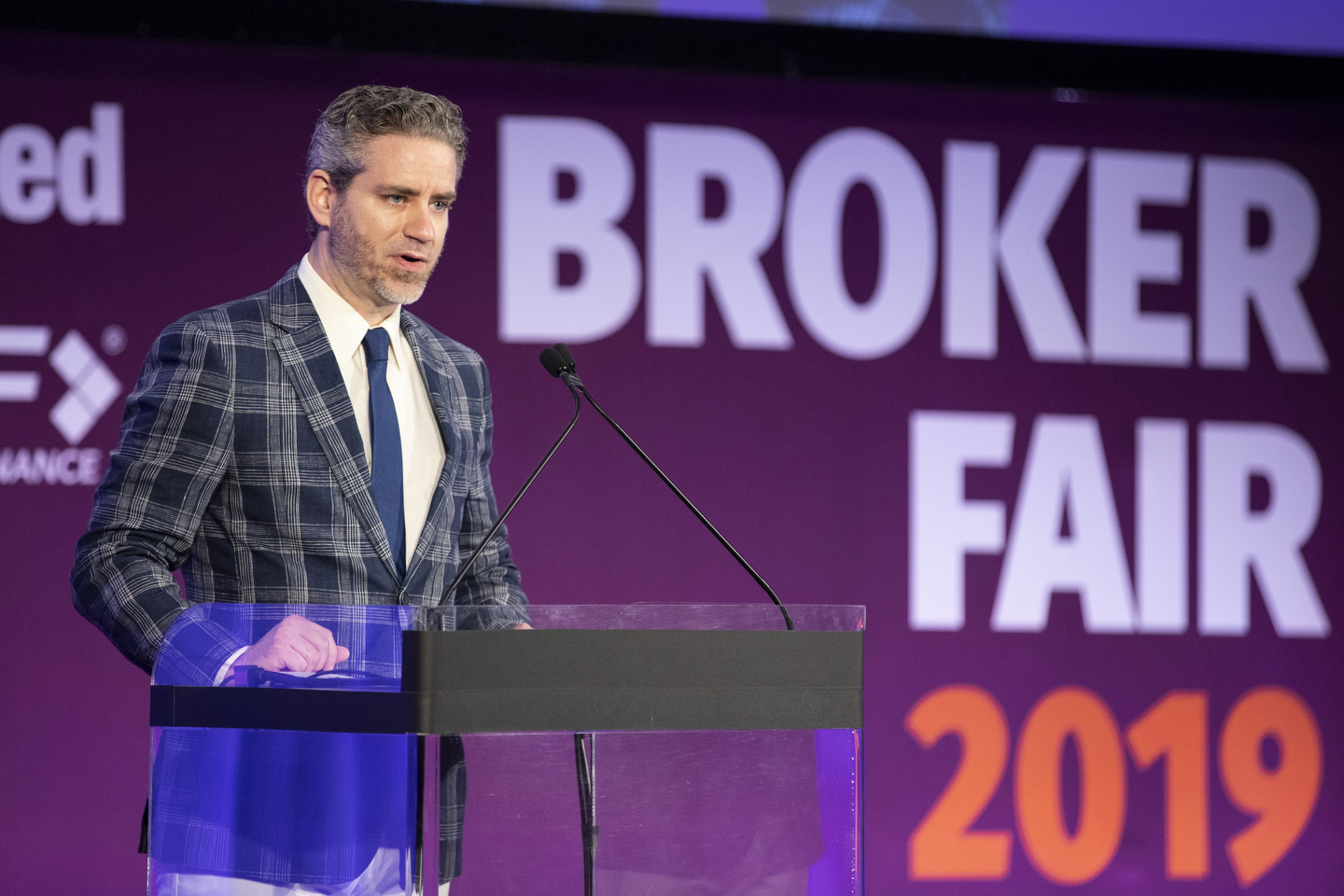 He spoke to a packed audience in one of the hotel ballrooms that was actually the site of a famous scene in the 1987 movie, “Wall Street,” starring Charlie Sheen and Michael Douglas. It was in this scene where one of the most well-known lines, “Greed is good,” was delivered in a speech by the character Gordon Gekko, a ruthless businessman played by Michael Douglas.
He spoke to a packed audience in one of the hotel ballrooms that was actually the site of a famous scene in the 1987 movie, “Wall Street,” starring Charlie Sheen and Michael Douglas. It was in this scene where one of the most well-known lines, “Greed is good,” was delivered in a speech by the character Gordon Gekko, a ruthless businessman played by Michael Douglas.
In Murray’s speech, he acknowledged the classic financial thriller, but gave it a twist.
“Funding small business is good,” Murray said. “It’s not greed that’s good. Aligned interests are good.”
This very room was a marriage of old and new. The 1924 room with soaring ceilings and crystal chandeliers was packed with mostly young faces in a still relatively new industry. The stage was simple, the chairs sleek, and colored strobe lights circled the ceiling in what created a fresh energy.
The first panel of the day, called “The Great Debate,” was dominated by discussion of technology among the CEOs of some of the largest companies in the small business funding industry: National Funding, Rapid Finance, BFS Capital, and Kapitus.
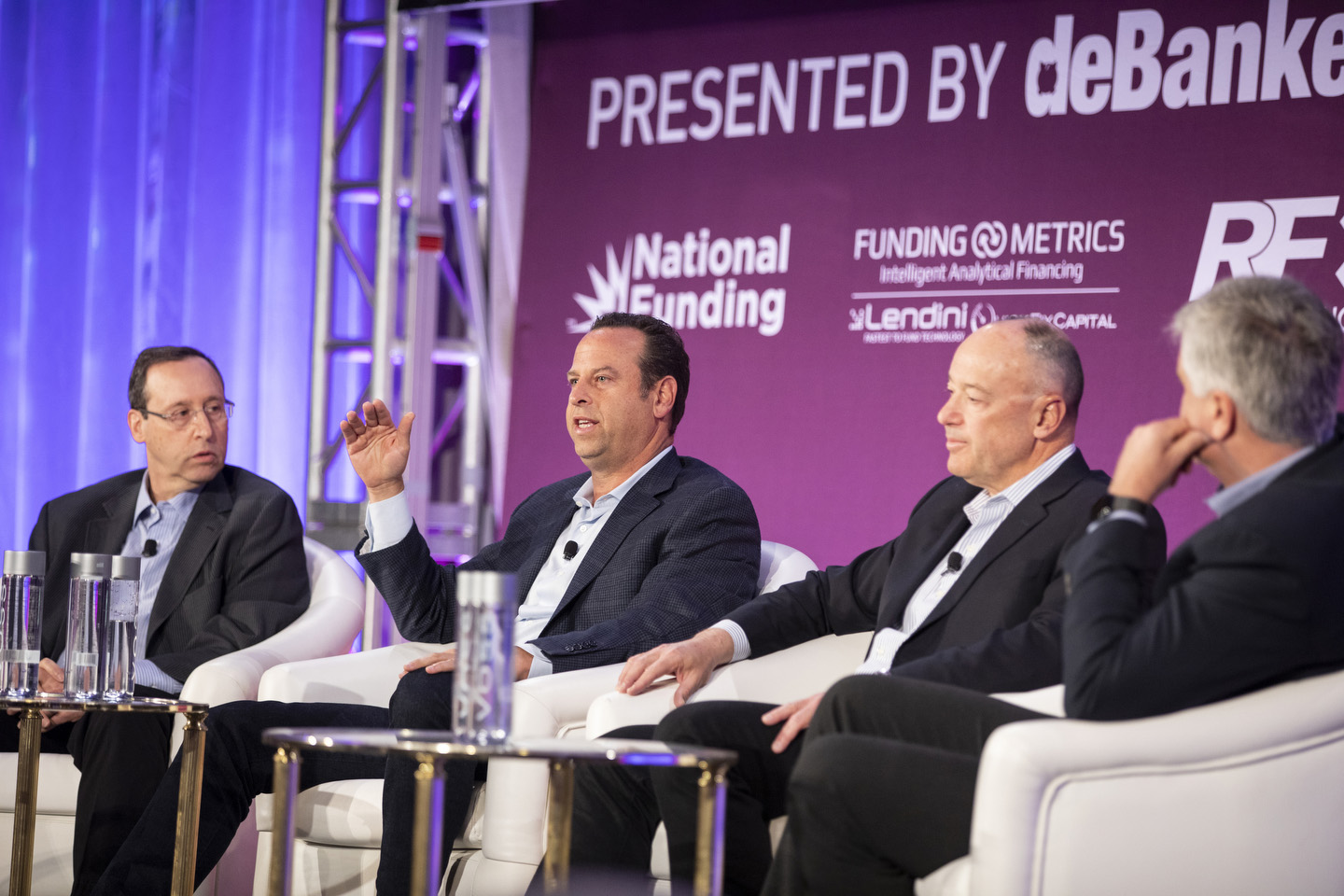
“Technology is an inevitability and a powerful way for brokers to stay relevant,” BFS CEO Mark Ruddock told deBanked. “The question is, ‘Does that preclude the small [brokers] who don’t have the money to invest in technology?’”
He sees great opportunity for software platforms that can connect an individual broker to lenders, similar to how Shopify connects small mom and pop retailers to a wider consumer audience.
One of the other CEOs on the panel said he was bullish on digitally savvy brokers and all of them seemed to agree that brokers should offer more products.
“Having a broader set of products benefits brokers because they become the go-to person for merchants rather than simply serve a transactional function,” Chairman of RapidAdvance Jeremy Brown told deBanked.
For brokers looking to expand their product offerings, there was a well-attended session called “Commissions with Factoring and Leasing” that was led by factoring and leasing professionals, Phil Dushey and Edward Kaye, respectively.
Meanwhile, the co-founders of the successful brokerage Everlasting Capital, led a session called “How to Scale Your Broker Shop” which included advice on everything from hiring to customer acquisition and social media marketing. One of the founders, Josh Feinberg, had his marketing person follow him around with a video camera throughout the day.
There were also sessions on regulations affecting the industry, plus a session called “Operating with Integrity: Why Ethics Matter.”
“The speakers are very relevant,” said Dexter Bataille, a broker at Pivotal Funding in Florida who attended Broker Fair. “And the panels are really good too.”
“deBanked always finds ways to make the shows more professional,” said Senior Sales Leader at Reliant Funding Nicolas Marr, who flew in from California to attend the conference. “The details really count.”

In another hotel ballroom, Broker Fair attendees meandered around high tables where event sponsors had representatives talking about their products and handing out free t-shirts and pens. As the day wound down and Broker Fair’s “networking happy hour” approached its end at 6 p.m., the figurative sun (created by small business finance conversations) began to set at the Roosevelt Hotel. But a crowd of about 100 lingered at the hotel bar, buzzing away, eager to make just a few more connections.
The small business financing sun will rise again on July 25 at deBank’s next event, deBanked CONNECT in Toronto. Tickets are already available.
OnDeck Slips To #3 in Tight Pack of Top Small Business Lenders
May 3, 2019 With most 2019 Q1 earnings in for public companies, the industry’s biggest lenders are off to the races. Square reported on Wednesday that Square Capital, its business lending arm, originated $508 million in loans in the first quarter of the year. Meanwhile, OnDeck originated $636 million this quarter, according to its earnings report released yesterday. Kabbage, which is not a public company, has been trailing very closely behind OnDeck for the last few years but someone familiar with the company said that Kabbage’s originations in the first quarter of this year surpassed OnDeck’s.
With most 2019 Q1 earnings in for public companies, the industry’s biggest lenders are off to the races. Square reported on Wednesday that Square Capital, its business lending arm, originated $508 million in loans in the first quarter of the year. Meanwhile, OnDeck originated $636 million this quarter, according to its earnings report released yesterday. Kabbage, which is not a public company, has been trailing very closely behind OnDeck for the last few years but someone familiar with the company said that Kabbage’s originations in the first quarter of this year surpassed OnDeck’s.
Then there is PayPal, which has not released official origination numbers for 2019 Q1. But earlier statements from PayPal that they had surpassed a billion dollars in quarterly small business funding in 2018 (already more than OnDeck), would put it in the #1 slot for originations. Additionally, a comment made by PayPal CEO Dan Schulman during the company’s earnings call last week implied that its Q1 2019 earnings are again over a billion dollars.
PayPal’s estimated originations number represents its US and international originations, including their business financing products available in the UK, Australia, Germany and Mexico. Likewise, OnDeck’s number represents originations from the US along with its smaller markets in Australia and Canada.
Square Capital operates exclusively in the US, so its originations number is US-only. And Kabbage’s undisclosed estimated originations number represents purely US originations.
| Company Name | 2019 Q1 Funding Volume |
| PayPal | $1,000,000,000+ |
| Kabbage | $650,000,000* |
| OnDeck | $636,000,000 |
| Square | $508,000,000 |
OnDeck Originations Slide in First Quarter
May 2, 2019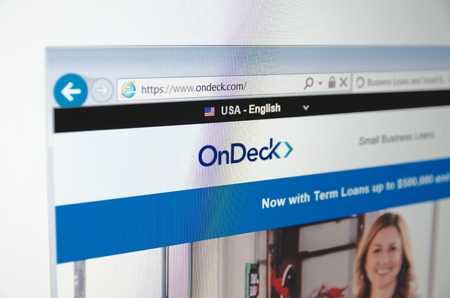 OnDeck’s originations dipped in the first quarter of this year to $636 million, down from $658 million in the previous quarter.
OnDeck’s originations dipped in the first quarter of this year to $636 million, down from $658 million in the previous quarter.
“We made some adjustments to credit policy mid-quarter to pull back in certain areas and our funding advisor channel volume decreased sequentially as a result,” said OnDeck CEO Noah Breslow.
In other words, OnDeck has tightened its credit box.
“If you tighten [your credit box] and your competitors stay exactly the same, on the margin, your funnel is going to deteriorate a little bit because you’re not making as aggressive offers as you were before,” Breslow said in response to a question on this morning’s earnings call.
But he also said that OnDeck has a lot of historical data on its portfolio that tells them that this tightening for now is a wise decision.
“And we’re not making a seismic shift in who we’re targeting or what we’re trying to do,” Breslow said.
When asked by an analyst on the conference call if competition in the space is now more intense, he agreed that it is.
“But it’s broad based, not localized to any one competitor,” Breslow said. “There are larger players in the market that are getting a little more mature. Some of them are improving their access to capital as well.”
Kabbage likely sees itself as a primary competitor and not just part of “broad based” competition. After all, it originated $2 billion last year, compared to OnDeck’s $2.48 billion.
“The small players actually have pretty good access to capital too,” Breslow said on the call. “So any single one of them is not that big, but if you put them all together, they’re equivalently sized to another OnDeck. So that’s something we watch as well.”
While total originations dropped for OnDeck, Breslow said that the company’s line of credit volume was at an all time high, accounting for $150 million. Also, 43% of volume for the first quarter of 2019 came from OnDeck’s direct channel. Yet the company continues to build out its partnerships.
“Given the attractive customer acquisition costs in the strategic partner channel…adding new partnerships remains a focus,” Breslow said.
Breslow said OnDeck expects to return to quarterly growth in the second half of this year.
College Students Abandon Student Loans, Offer Share Of Their Future Income Instead
April 29, 2019 At Purdue University, home of the Boilermakers, there’s a brick bell tower that stands high above everything else on this handsome campus of stately college buildings and green lawns. Paul Laurora, a senior Chemical Engineering student, said the bell rings on the hour and at 20 minute intervals throughout the day, as that’s when classes begin and end. And at 5 p.m., the bell rings out the melody of Purdue’s school song, “Hail Purdue.” That’s a lot of bell ringing. Laurora is a fraternity member, he lives with seven other roommates in a house on campus and he really likes film. He’s also a part of Purdue’s “Back a Boiler” Income Share Agreement (ISA) program, which is an alternative to a student loan. An ISA is an arrangement where college students pay a percentage of their future earnings to the college and other investors.
At Purdue University, home of the Boilermakers, there’s a brick bell tower that stands high above everything else on this handsome campus of stately college buildings and green lawns. Paul Laurora, a senior Chemical Engineering student, said the bell rings on the hour and at 20 minute intervals throughout the day, as that’s when classes begin and end. And at 5 p.m., the bell rings out the melody of Purdue’s school song, “Hail Purdue.” That’s a lot of bell ringing. Laurora is a fraternity member, he lives with seven other roommates in a house on campus and he really likes film. He’s also a part of Purdue’s “Back a Boiler” Income Share Agreement (ISA) program, which is an alternative to a student loan. An ISA is an arrangement where college students pay a percentage of their future earnings to the college and other investors.
 Laurora was introduced to the ISA program by Purdue. It launched in 2016 and was the first of its kind. He said he signed up for it because he was denied student loans by banks and because he said the ISA is more transparent and easier to obtain.
Laurora was introduced to the ISA program by Purdue. It launched in 2016 and was the first of its kind. He said he signed up for it because he was denied student loans by banks and because he said the ISA is more transparent and easier to obtain.
“If I hadn’t gotten the ‘Back a Boiler’ ISA, I would have had to take a semester off to work to contribute to my tuition,” Laurora said.
Purdue’s ISA program works such that the percentage of a student’s future earnings that go to repaying the advance is based on the amount of money they are likely to make given their major. But the math works out such that all graduates are expected to pay roughly the same minimum amount. The graduates are given six months to find employment and then the clock starts ticking, like the one inside the campus bell tower.
As a senior, Laurora has been on an active job search. Earlier last week, he said he wasn’t too concerned about paying off his ISA, but he said it was definitely a factor when considering different jobs and their salaries. Last Friday, Laurora got a job offer from a Washington, D.C. firm to be an Engineering Technology Analyst, and he feels comfortable that he’ll earn enough money for himself while still being able to give a percentage of his salary to the ISA.
For Laurora, he is required to give 2.57% of his income for a little more than 7 years. What Laurora and other students find attractive about Purdue’s ISA Program is that, like all ISA programs, there is a time cap (usually 10 years) after which the graduate no longer owes money. The program simply concludes.
 Florin Handelman is a junior at Purdue who wanted to go there because of its prestigious engineering program. He ended up switching his intended major to Industrial Design, which he’s very passionate about. He’s even part of a student club where upperclassmen mentor underclassmen in industrial design.
Florin Handelman is a junior at Purdue who wanted to go there because of its prestigious engineering program. He ended up switching his intended major to Industrial Design, which he’s very passionate about. He’s even part of a student club where upperclassmen mentor underclassmen in industrial design.
Handelman also has an ISA, which he said he really likes because of the time cap. But he noted a potential downside – which is that if you end up making far more than what Purdue anticipated, you still pay the same percentage on your income, which could end up being a lot more than a fixed-rate student loan. He conceded, though, that earning far more than expected is “an ok problem to have.” For extremely high earners, Purdue has a cap so that no one pays more than 2.5 times the principal amount they were given.
Handelman said that none of his friends have an ISA and that, unless you’re applying for financial aid, “no one really knows about it.”
 Since 2016, Purdue’s “Back a Boiler” program has served over 500 students with 820 contracts for a total amount of almost $10 million, according to Tim Doty, Director of Public Information and Issues Management at Purdue. Last year’s freshman undergraduate class had more than 8,000 students, so 500 in the ISA program altogether is still a very small number. But the program has been growing steadily. And in the time since Purdue launched the first ISA program, there are now about 25 other ISA programs at institutions of higher education in the U.S., according to Charles Trafton, co-founder of Edly, a new online marketplace that connects ISA investors.
Since 2016, Purdue’s “Back a Boiler” program has served over 500 students with 820 contracts for a total amount of almost $10 million, according to Tim Doty, Director of Public Information and Issues Management at Purdue. Last year’s freshman undergraduate class had more than 8,000 students, so 500 in the ISA program altogether is still a very small number. But the program has been growing steadily. And in the time since Purdue launched the first ISA program, there are now about 25 other ISA programs at institutions of higher education in the U.S., according to Charles Trafton, co-founder of Edly, a new online marketplace that connects ISA investors.
Purdue is a public school, so tuition is less expensive in general, particularly for in-state students. For the 2018-19 academic year, tuition for in-state students was $9,992 a year and $28,794 a year for out-of-state students.
“College is ridiculously priced in general,” said Laurora, who is an out-of-state student from New Jersey. “I have a friend who’s paying $80,000 a year at NYU.”
Savanna Williams is an in-state junior and an Elementary Education major at Purdue. She’s also a member of a sorority and is an officer in a student run dance club. One thing Williams said she likes about the ISA program is that if she wants to start a family and not work for a few years, she wouldn’t owe money then. With Purdue’s program, a graduate can take off time and not pay for up to five years. But the ISA payment term is then extended for however long a period that the graduate stopped working.
Given their shared experience and future commitments, students in Purdue’s ISA program are kind of like members of a club. When Laurora was at Harry’s Chocolate Shop, a popular bar near campus, he ran into someone he knew who was in the program.
“We said hi and both agreed it was helpful.”
Lending Club Calls It Quits On Underwriting Small Business Loans
April 23, 2019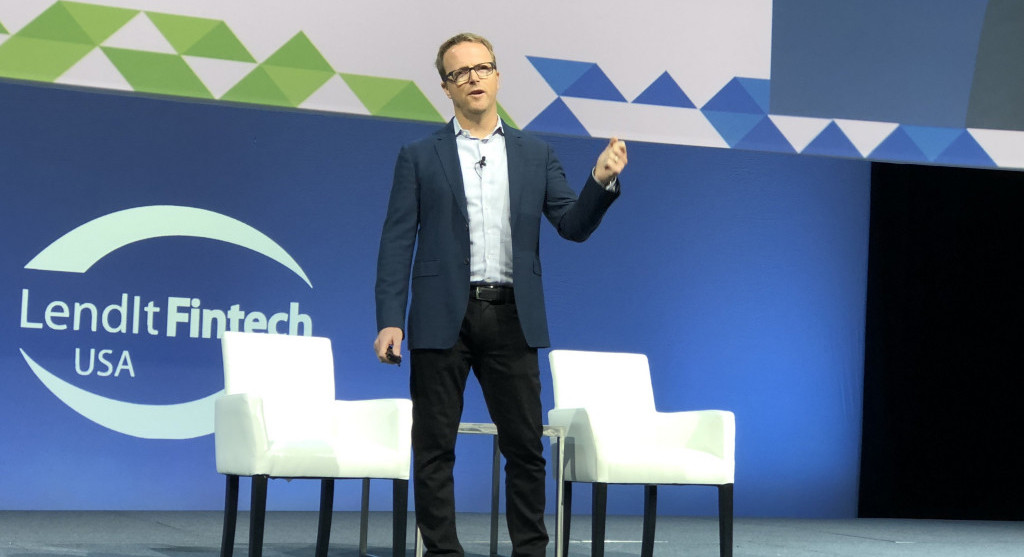
Lending Club will no longer be underwriting small business loans, according to Lending Club Head of Communication VP Anuj Nayar. The company will still accept applications for them, but will direct them instead to Opportunity Fund and Funding Circle in exchange for referral fees. Less established businesses, or those with lesser credit, will be sent to Opportunity Fund, while more established businesses with better credit will go to Funding Circle.
According to Nayar, there will be no layoffs. Some employees who had worked in small business underwriting will move elsewhere within Lending Club while others will become contractors for Opportunity Fund. Opportunity Fund is a non-profit with the mission of investing in small businesses that have been shut out of the financial mainstream. It is backed by major financial institutions including Bank of America, Goldman Sachs and the JP Morgan Chase and Knight Foundations. In fiscal year 2017, Opportunity Fund made over $92.5 million in loans to more than 2,900 small business owners.
“[These two partnerships] enables us to both deliver greater value to our applicants and capture a new revenue stream for Lending Club, while further simplifying our business and setting the stage for more partnerships and innovations for Club Members,” said Lending Club CEO Scott Sanborn.
The new revenue stream Sanborn refers to is the referral fees Lending Club will get from its new funding partners when they fund loans sent to them from Lending Club. And Lending Club’s business will be streamlined as it jettisons small business lending backend operations. They will now focus exclusively on consumer loans, which has been the company’s primary business since it was founded in 2006.
Lending Club expanded into small business lending several years ago, but this component of its business never really took off, and was declining over the last few years. At the end of December 2016, Lending Club’s non-consumer loan originations (including small business loans) accounted for 10% of its business. In December 2017, it was 9%. And in the fourth quarter of 2018, it was 7%.
Nayar said that these new partnerships will allow Lending Club to focus even more on consumer lending. Headquartered in San Francisco, Lending Club has lent more than $44 billion to 2.5 million customers.
SEC Finding Said that Prosper Misled Investors
April 22, 2019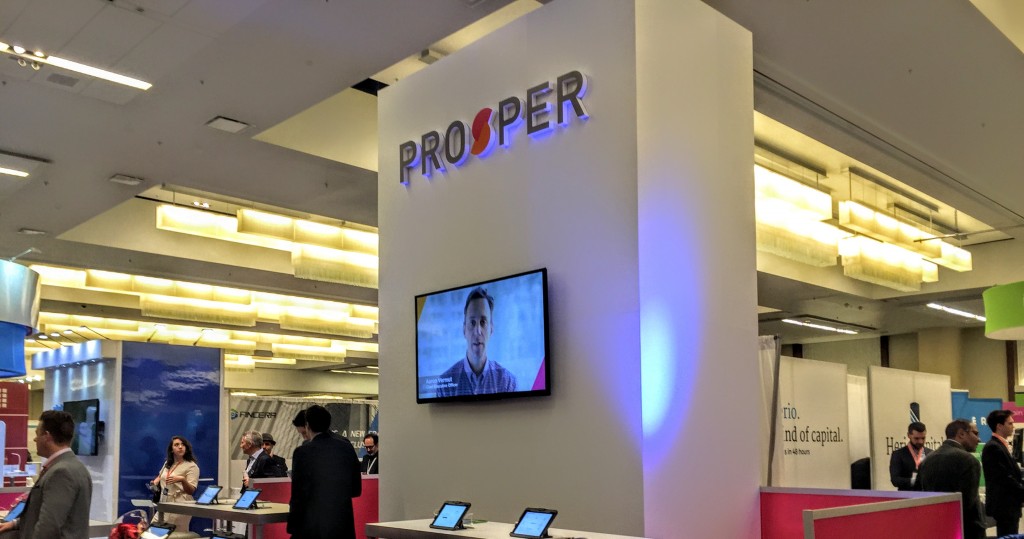 From approximately July 2015 until May 2017, Prosper excluded certain non-performing loans from its calculation of annualized net returns that it reported to its investors, according to an SEC order released last Friday. The order found that Prosper reported overstated annualized net returns to more than 30,000 investors on individual account pages on Prosper’s website and in emails soliciting additional investments from investors.
From approximately July 2015 until May 2017, Prosper excluded certain non-performing loans from its calculation of annualized net returns that it reported to its investors, according to an SEC order released last Friday. The order found that Prosper reported overstated annualized net returns to more than 30,000 investors on individual account pages on Prosper’s website and in emails soliciting additional investments from investors.
As a result of the inflated numbered, which the SEC order says Prosper management was aware of, many investors decided to make additional investments based on the overstated annualized net returns. The SEC order said that Prosper failed to identify and correct the error that overstated its annualized net returns “despite Prosper’s knowledge that it no longer understood how annualized net returns were calculated and despite investor complaints about the calculation.”
“For almost two years, Prosper told tens of thousands of investors that their returns were higher than they actually were despite warning signs that should have alerted Prosper that it was miscalculating those returns,” said Daniel Michael, Chief of the SEC Enforcement Division’s Complex Financial Instruments Unit.
Prosper neither admitted nor denied the findings. The company did not refute the SEC order’s findings, including that it violated the antifraud provision contained in Section 17(a)(2) of the Securities Act of 1933. Prosper will pay a $3 million penalty for miscalculating and overstating annualized net returns to retail and other investors.
According to a 2017 Financial Times story, one Prosper investor wrote on the Lend Academy forum in 2017 that their returns were restated from about 14 percent to 7 percent.
“Shame on me for just assuming that I was getting a higher rate,” the investor wrote, “but shame on Prosper x 1000 for misleading investors.”
In a written statement to deBanked today, a Prosper representative characterized the miscalculation as an error only, not a scheme. She conveyed that when Prosper discovered the error in 2017, they notified investors who were impacted and changed the numbers so that they accurately reflected the investors’ returns.
“We’re pleased to have the SEC inquiry resolved and appreciate the SEC’s recognition of our cooperation as the agency looked into this matter,” read a statement provided by Prosper. “Since discovering and fixing this issue two years ago, we have put additional controls in place designed to detect and prevent similar errors in the future, and we are committed to providing transparent information on returns to our retail investors.”
Prosper’s CEO, David Kimball, was awarded “Executive of the Year” at this year’s LendIt Fintech conference earlier this month.
In 2018, the company originated $2.8 billion in loans, remaining flat compared to 2017. Prosper’s net revenue last year was $104 million, a decrease compared to $116 million in 2017. Founded in 2005 and headquartered in San Francisco, Prosper provides personal loans up to $40,000 and was one of the first peer to peer lenders.
When Merchants Defraud Lenders
April 17, 2019 Back when lenders used to visit the site of a merchant’s business, a “doctor” once hired actors to play nurses and patients to give the illusion of a thriving medical practice when the lender came to check in on the business before financing it. The doctor’s office looked legitimate, it got funded and the fraudster ran off with the money.
Back when lenders used to visit the site of a merchant’s business, a “doctor” once hired actors to play nurses and patients to give the illusion of a thriving medical practice when the lender came to check in on the business before financing it. The doctor’s office looked legitimate, it got funded and the fraudster ran off with the money.
This story was shared last night by Lowell Isaacs, Chief Credit Officer at Fora Financial, as part of an anti-fraud panel discussion organized by Ocrolus. Meanwhile, another panelist relayed a story about a nine-year old who was cheating the system at a chess club he brings his son to.
“If kids can do it, customers can do it too,” said Vivek Nasta, VP of Product at Ocrolus, which designs and implements technology to verify the authenticity of financial data, primarily bank statements.
Another panelist, CEO of PeerIQ Ram Ahluwalia, spoke about synthetic fraud, or people using manufactured identities.
“They”ll be a very good payer and then three years later, they’ll draw out all the money and disappear,” Ahluwalia said.
Nasta spoke of how, after the financial crisis, it became impossible to get a loan from banks. And what developed, Nasta said, was “a race for customers” to fill the void that banks left. Since the online lenders were competing – and still do – around speed, he said that customers started assuming that they could get money very quickly.
Isaacs acknowledged the role that funders played in rushing money to merchants.
“In some ways, this is something we’ve brought on ourselves,” Isaacs said. “I’m not sure it was a demand issue. I think a lot of it came from the supply side.”
Ahluwalia, however, acknowledged that many legitimate borrowers, particularly consumer borrowers, do prioritize speed over rate, often because they have no savings for emergencies.
“I hope you’ll never see a lender fund a merchant instantly,” said Yaakov Erlichman, VP of Fraud at Kabbage, “unless they have all the data on that merchant.” Granted, Kabbage can already approve a merchant in less than 10 minutes, so Kabbage is definitely focused on speed.
Everyone on the panel seemed to agree that it’s impossible to eliminate fraud altogether.
Nasta said that Ocrolus can protect against counterfeiting by recognizing, say, that the font of one character in a Bank of America bank statement is a font that hasn’t been used by Bank of America in 10 years. Kabbage’s Erlichman told deBanked he believes that fraudsters are not just random guys in their basement, but rather highly organized teams of people who spend their days creating fake identities and applying for loans. Still, he said that the number of people trying to defraud Kabbage is very small.
“99.9% of our customers are good actors,” Erlichman said, “so you want to make their experience awesome.”






























